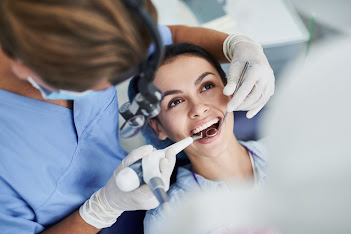Teeth grinding, known as bruxism, is a condition where one clenches or grinds their teeth unconsciously. This habit can occur both during the day and at night, with many not even realizing they're doing it. It's a behaviour that can lead to several dental issues, including tooth damage and jaw pain. Being aware of bruxism is crucial as early detection and treatment can prevent long-term damage to your teeth and help alleviate discomfort.
The reasons behind teeth grinding are varied, ranging from stress and anxiety to misaligned teeth or sleep disorders. Recognizing the signs of bruxism and seeking timely advice from a dentist, especially if you're looking for the best dentist in Delhi or surrounding areas, is essential for maintaining good oral health. Let’s dive into the causes and treatments of Bruxism below.
Why Do People Grind Their Teeth?
Stress and Anxiety: High levels of stress can lead to unconscious teeth grinding. Finding ways to relax, like through hobbies or meditation, can greatly reduce grinding.
Misaligned Teeth: Incorrect alignment of teeth can cause grinding during sleep. Orthodontic treatments may help correct the alignment and stop the grinding.
Sleep Disorders: Conditions like sleep apnea can trigger teeth grinding. Treating the sleep disorder can often alleviate bruxism as well.
Lifestyle Factors: Consumption of caffeine or alcohol may increase the risk of bruxism. Reducing intake of these substances, especially before bedtime, can help minimize grinding.
Signs You Might Be Grinding Your Teeth
There are a few signs that can tell you if you're grinding your teeth. You might wake up with a sore jaw or a headache. Your teeth might also look flat or worn down. If someone tells you they hear you grinding your teeth while you sleep, that's another sign.
How Can Your Dentist Help?
A dentist can check your teeth and see if you're grinding them. They can look for signs of wear on your teeth and ask you about any symptoms. The best dentist in Delhi NCR or elsewhere can offer different treatments. One common solution is a mouthguard. This is a piece of plastic you wear at night to protect your teeth. It helps keep them from grinding against each other.
Other Ways to Treat Teeth Grinding
Besides seeing the dentist in Delhi NCR or wherever you reside, there are other ways to help stop teeth grinding. Managing stress is important. Things like exercise, meditation, or talking to a professional can help reduce stress. Also, try to avoid things that make you clench your jaw, like chewing gum.
When to See a Dentist
It’s a good idea to visit your dentist if you think you are grinding your teeth. These are some signs that will warrant a visit to your dentist:
Experiencing Persistent Jaw Pain or Headaches: This could indicate that you are grinding your teeth severely enough to affect your daily life. A visit to the dentist can help identify the root cause and offer solutions.
Noticing Significant Wear and Tear on Your Teeth: Visible damage to your teeth is a clear sign that bruxism might be affecting your dental health. Early dental intervention can prevent further damage.
Comprehensive evaluations and treatment plans: Best dentists in South Delhi and similar areas use advanced diagnostic tools to assess the extent of bruxism and create a personalized treatment plan tailored to your specific needs.
In A Nutshell
Teeth grinding can be annoying and bad for your teeth, but there are ways to treat it. Whether you're looking for the best dentist in South Delhi or anywhere else, getting help is the first step to protecting your teeth and finding relief. You can get started at one of the best dental clinics called Smile Delhi – The Dental Clinic. They are famous for quick and lasting results with their procedures. If you require expert and welcoming service for all your dental needs,
FAQs
What are the consequences of untreated bruxism?
Untreated bruxism can lead to serious dental problems such as tooth damage, jaw disorders like temporomandibular joint (TMJ) syndrome, and even tooth loss. It can also cause chronic pain and discomfort in the jaw, head, and neck.
Can children grind their teeth?
Yes, teeth grinding can occur in children as well. It's often temporary and typically resolves on its own as they grow older. However, if it persists or causes dental problems, parents should consult a pediatric dentist for evaluation and possible intervention.
How can I tell if I grind my teeth?
Common signs of teeth grinding include waking up with jaw pain, headaches, or earaches. You may also notice worn-down teeth, increased tooth sensitivity, or damage to the inside of your cheeks from biting. A dentist can diagnose bruxism through a dental examination.

Comments
Post a Comment